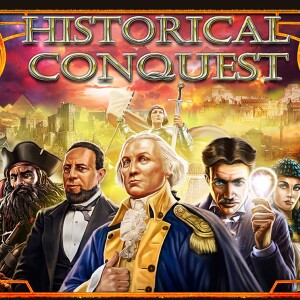

W11:D2 - Colonial Life The Portuguese Colonies in Brazil The Adventure Box Podcast
Portugal's Exploration and Settlement in North America and Brazil
Portugal's exploration and settlement efforts in the 15th and 16th centuries were pivotal in shaping the history of the Americas. While often overshadowed by Spain's more extensive conquests, Portugal's colonization endeavors in the Americas, particularly in Brazil, laid the groundwork for significant cultural, economic, and geopolitical developments. This chapter delves into the major events surrounding Portugal's settlements in North America and Brazil, focusing on Salvador, Rio de Janeiro, and other colonies. It highlights the historical significance of these events, and the importance of understanding them in the broader context of global history.
Portugal's North American Ventures
Portugal's primary focus in the Americas was on Brazil, rather than North America. However, there were notable Portuguese expeditions, and attempts to explore and settle parts of North America. The Portuguese navigators, including João Vaz Corte-Real and his sons, Gaspar and Miguel Corte-Real, explored the coasts of Newfoundland and Labrador, in the late 15th and early 16th centuries. These voyages were part of Portugal's broader efforts to establish a presence in the New World, and expand their maritime empire.
Although the Portuguese did not establish permanent settlements in North America, their early explorations contributed to the mapping and understanding of the continent's eastern coastline. These expeditions also set the stage for subsequent European exploration, and colonization efforts.
The Settlement of Salvador
Salvador, founded in 1549, was the first capital of colonial Brazil, and one of Portugal's most significant settlements in the New World. The establishment of Salvador marked the beginning of a structured colonial administration in Brazil. Tomé de Sousa, the first governor-general, led the settlement efforts, bringing with him a group of settlers, soldiers, and Jesuit missionaries.
Salvador's strategic location, on the Bay of All Saints, made it an ideal center for trade and governance. The city quickly became a hub for sugar production, which was the cornerstone of the Brazilian economy. The introduction of African slaves, to work on the sugar plantations, was a crucial aspect of this economic model, leading to a complex social structure, and significant demographic changes.
The establishment of Salvador was essential for several reasons:
- Economic Impact: Salvador became a vital economic center, facilitating the export of sugar and other goods to Europe. This trade contributed significantly to Portugal's wealth, and influenced global trade patterns.
- Cultural Exchange: The city's diverse population, including Europeans, Africans, and indigenous peoples, led to a unique cultural exchange. This blending of cultures is evident in the region's music, cuisine, language, and religious practices.
- Colonial Administration: Salvador served as the administrative heart of Portuguese Brazil, establishing governance structures that would shape the colony's development.
The Settlement of Rio de Janeiro
Rio de Janeiro, founded in 1565, was another critical Portuguese settlement. The city was established to counter French incursions in the region, particularly the French attempts to establish a colony called France Antarctique, in the Guanabara Bay area.
The Portuguese, led by Estácio de Sá, successfully expelled the French, and established Rio de Janeiro as a fortified settlement. The city's location offered strategic military advantages, and access to important trade routes. Over time, Rio de Janeiro grew in economic importance, particularly with the discovery of gold and diamonds in the interior regions, during the late 17th and early 18th centuries.
Rio de Janeiro's significance includes:
- Military and Strategic Importance: The settlement helped secure Portuguese claims in the region, and prevented other European powers from establishing a foothold in Brazil.
- Economic Development: The city's growth was spurred by the booming mining economy, leading to increased wealth, and population growth.
- Cultural and Political Center: Eventually, Rio de Janeiro became the capital of Brazil, in 1763, reflecting its growing importance as a political and cultural center.
Other Portuguese Colonies
In addition to Salvador and Rio de Janeiro, Portugal established several other settlements and colonies in Brazil. These included São Paulo, Recife, and Belém, each playing a unique role in the colony's development. São Paulo, for instance, became a center for inland expansion, and played a crucial role in the bandeiras expeditions, which pushed Portuguese influence further into the interior of South America.
Historical Significance
Understanding Portugal's settlement efforts in the Americas is crucial for several reasons:
- Global Trade and Economy: Portuguese colonies, particularly in Brazil, were integral to the global trade networks of the 16th and 17th centuries. The sugar, gold, and diamond industries significantly impacted the global economy.
- Cultural Influence: The blending of European, African, and indigenous cultures, in Portuguese colonies, created unique cultural identities that continue to influence the regions today.
- Colonial Rivalries: Portugal's settlements were part of the broader competition, among European powers, for dominance in the New World. These rivalries shaped the geopolitical landscape of the Americas.
- Social and Demographic Changes: The introduction of African slaves, and the interactions with indigenous populations, led to profound social and demographic changes. These changes had lasting impacts on the social structures and cultural compositions of the colonies.
Portugal's exploration and settlement efforts, in North America and Brazil, were pivotal in the history of the Americas. The establishment of key settlements, like Salvador and Rio de Janeiro, set the stage for economic growth, cultural exchange, and geopolitical developments that have shaped the region's history. Understanding these events provides valuable insight into the complexities of colonialism, global trade, and cultural interactions that continue to influence the modern world.
More Episodes
All Episodes>>You may also like
Create Your Podcast In Minutes
- Full-featured podcast site
- Unlimited storage and bandwidth
- Comprehensive podcast stats
- Distribute to Apple Podcasts, Spotify, and more
- Make money with your podcast












